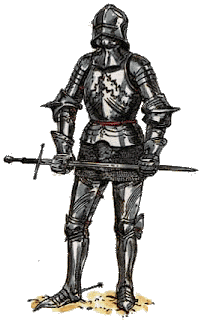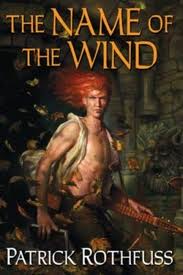Typically, the easiest thing for me to do is to review things that I feel very strongly about. What I'm currently reading, watching or playing, if I particularly like it, or on the other hand, if I feel that it is particularly bad, it is easy to write a post about it. That's one of the things that makes reviews posted to blogs tend toward the extremes, we choose what we are going to write about, and most everyone would choose an article that is easy to write over a more difficult one. Traditional media reviewers typically don't have that luxury, frequently they are assigned a product, show or other thing to experience and review and we don't always love or hate everything... But they still have to write the article. Mixed reviews are more common coming from those sorts of writers, then. Fair warning, this will be my modest attempt at reviewing something I have mixed feelings about.
The number of eyes that have made their way onto this site have provided me, on occasion, with access to one or two things not available to the general public. Early looks at fall television shows, passes to attend events, that sort of thing. Before I write about something like this, I feel that it is for the best, in the interest of full disclosure, that I mention it. One such opportunity afforded me was the chance to look at the debut novel from one of my readers here, and a request for a review. Caldera: the Book of Ixkin is a fantasy novel written by Matthew Cousineau and published through Createspace and offered for sale as either paperback or Kindle e-book from Amazon. I believe in the self-publishing industry as supported by Amazon, whether you choose to publish as a Kindle-only title or if you have a company like Createspace or Lulu print “dead tree editions”.
 |
| The cover image, also put together by the author. |
Many authors who have amazing stuff die on a submission editor's desk for very flimsy reasons, who can't catch the lucky break of having that perfect set of eyes on the right manuscript at the right time... Well, they know all about the advantages of self-publishing. I'm not a fan of content middlemen putting up paywalls and collecting a check on the backs of creative people, and I'm all for tearing down those barriers to entry for new writers. That said, there are some things about working with a traditional publisher that do a great service to both author and reader, and the lack of such can harm an otherwise decent work.
Caldera is a book that starts from a very promising place. Yesterday, I talked about core assumptions and the roots of geek entertainment in Western European mythology. Caldera immediately gains points with me by starting with a cultural baseline of Central American tribal values instead of the old “knights and wizards” bit. That strength may have appeared as a weakness to a potential publisher, who might potentially want no part of it based on that alone. That would be a shame. Unfortunately, the lack of proper editorial oversight means that early chapters are littered with the kinds of spelling and grammar errors that weaken the book, ones that an editor would stomp flat.
 |
| You won't find this guy among the default heroes of this setting. |
From a strong opening chapter, Caldera reveals almost immediately a connection with a historical figure that was more distracting than surprising, and that pulled me out of the narrative and broke my suspension of disbelief long enough for me to start questioning things. Once I'd resolved to let things play out as they would, allowing that the fusion of our world with a fantastic and magical one meant that points of historic fact were irrelevant, I allowed myself to get back to the story being told. The twin boys, last of the Delar and protagonists of the tale are raised in very different environments and face different challenges in their journey to make themselves ready for the fight to protect their world.
Caldera is at its strongest when it is describing and breathing life into specific tribal cultures or the behavior of creature types. Development of the individual people in those cultures, however, seems to be reserved for the very few who have major roles to play in the narrative, as minor characters often come across as little more than names. Physical descriptions of places and people is sometimes conspicuous by its absence, or forgettable enough that I had a hard time keeping straight what I was reading about was supposed to look like. It is sometimes unclear which characters are basically humans, and which cultures are comprised of creatures capable of human behavior but with more animal or bestial physical attributes.
 |
| Distinct tribal cultures form the backbone of the fantastic version of the Americas in Caldera. |
So, bottom line, can I recommend this book? There is enough interesting here for me to answer that question with a qualified “Yes.” The setting is strong, though I personally feel it would have been stronger without the appearance of specific figures from history, and the story is good, if in desperate need of the firm hand of an editor. I would recommend the Kindle edition at $0.99, if not the paperback edition based on the setting and plot alone. If, on the other hand, the odd spelling or grammar error is a deal-breaker for you, Caldera will prove a frustrating read, and won't be a good fit. For other creators of content seeking honest reviews and a critical eye on your work, I am willing and capable of providing a review article of geeky content from new creators; novels, homebrew gaming supplements or film/video projects. If you are interested, let me know, I'll give an honest review based on my impressions.
 Blog Gadgets
Blog Gadgets
































